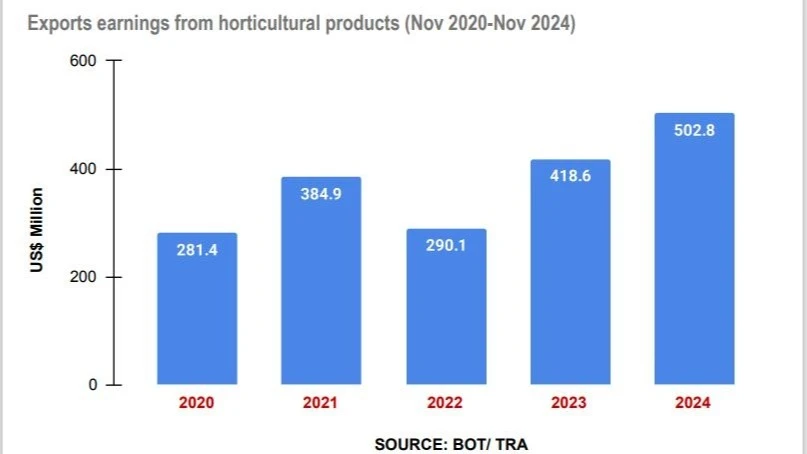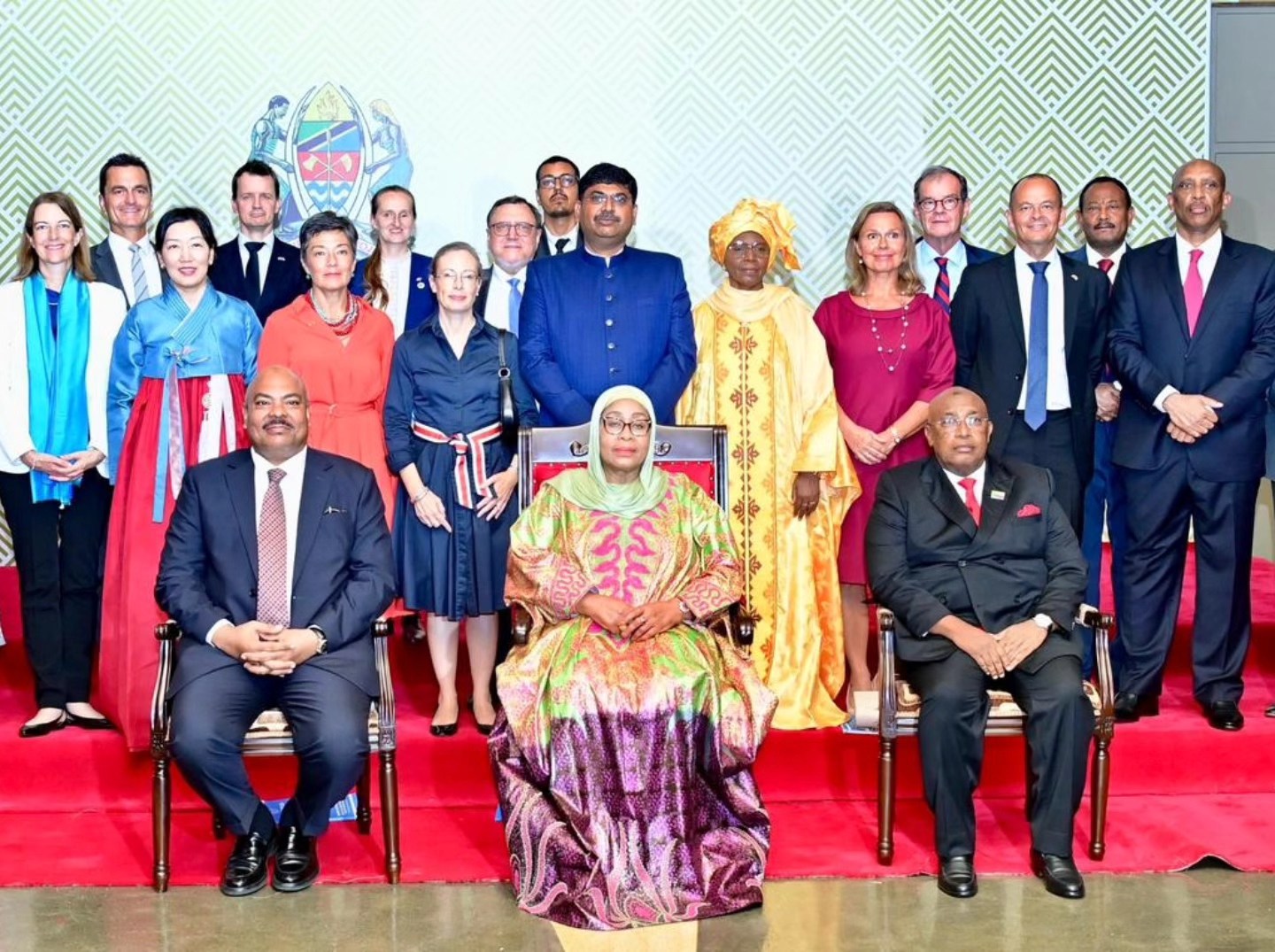Horticultural products exports earnings clock US$500m mark

The exports earnings from horticultural products have clocked US$500 million mark (nearly 1.5trn/-) driven by the shipment of edible vegetables , making it one of the significant sectors to watch in future, in terms of contributing to foreign exchange earnings.
Tanzania's horticulture exports include a variety of fruits, vegetables, herbs, and spices, which is positioning the country as one of the world's top 20 vegetable producers.
Provisional data by Bank of Tanzania (BoT) and Tanzania Revenue Authority (TRA) show that during the year ending November 2024, exports earnings from horticultural products amounted to US$502.8 million, an increase from US$418 million recorded during the year ended in November 2023.
Major markets for horticultural products exports include United Kingdom, European Union, China and other Asian countries.
The amount was more than exports earnings recorded by key traditional crops including cashew nuts (US$448 million) and tobacco (US$480 million) or more than exports earnings from cloves, coffee, sisal and tea combined.
The largest earnings were recorded on exports of edible vegetables, which amounted to US$386 million, an increase from US$321 million recorded during the year ended in November 2023.
Data show exports earnings from floriculture, also increased during the reported period to US$28.4 million, from US$26 million, while fruits exports injected US$53.2 million from US$38million respectively.
The exports of other unspecified horticultural products also recorded increased earnings as they amounted to US$34 million from US$32.9 million respectively.
This is happening while the government is continuing to create conducive business environment as well as necessary technical and financial supports to enable the sector to expand its export earnings to at least US$2 billion by 2030.
In September last year, the government launched the Horticulture Accelerator Programme (HEAP) with the ambitious goal of boosting the nation’s horticultural exports to targeted amount.
Developed by Tanzania Horticultural Association (TAHA) in collaboration with Tanzania High Commission in the UK, HEAP aims to empower local producers by equipping them with the tools and knowledge necessary to meet international market standards.
The initiative focuses on enhancing the horticulture value chain through capacity building, robust trade linkages and strict adherence to international quality standards, specifically the UK market.
However, taxation of services tied to seed research and breeding by multinational companies is one of the major barriers facing the sector, which mostly employs women and youths.
In April last year, The Tanzania Horticultural Association (TAHA) and TradeMark Africa (TMA) signed a US$2.1 million (5.4bn/-) grant agreement to initiate Phase II of their collaborative project to promote horticultural products market expansion.
This second phase, backed by a grant from TMA funded by the Foreign, Commonwealth & Development Office (FCDO), Norway, and Ireland, spans three years and focuses on advancing market access, promoting sustainable trade practices, and empowering local farmers in the horticultural industry.
TMA explains that despite notable successes, Tanzania’s horticulture sector continues to face substantial challenges, including limited financing access, climate change impacts, and inadequate market information, which could hinder growth.
Speaking durin the grant agreement signing ceremony, TradeMark Africa’s Regional Director for East and Central Africa, Monica Hangi highlighted the significance of supporting the horticultural sector, particularly in mitigating unemployment among youth and women.
“Our commitment through this substantial grant is to upscale production, increase export volumes, and, consequently, job opportunities, thereby reinforcing Tanzania’s standing in the global horticultural market,” said Hangi.
Several studies have evaluated the impact of horticulture on Tanzania’s economic development.
Research conducted by various local universities and international organizations like the World Bank highlights the sector’s role in improving the livelihoods of rural populations.
These studies reveal that advancements in agricultural practices and technology have led to higher productivity, better crop quality, and increased farmer incomes.
Horticulture is currently practiced in different regions including Morogoro, Iringa, Mbeya, Ruvuma, Arusha, Kilimanjaro, Tanga, Manyara and Zanzibar region.
Top Headlines
© 2025 IPPMEDIA.COM. ALL RIGHTS RESERVED

























